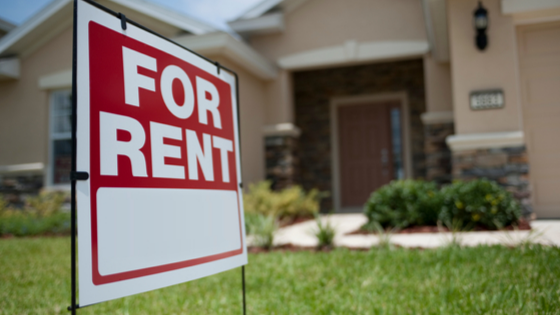Governor Gavin Newsom signed bill AB 1482 into law Tuesday, which establishes statewide rent control in California along with Just Cause Eviction for tenants.
Newsom boasts that AB 1482 has “the NATIONS strongest statewide renter protections.”
The new law will take affect January 1, 2020 and will expire in 2030. It applies to all areas of the state that do not currently have a rent control policy in place. If the city where the property lies is currently governed by rent control, the city rent control policy will prevail.
What Are The Caps On Rent Increases?
Under the new rent control law in California, annual rent increases will be limited to 5%, plus local inflation and is capped at 10%. The rate of inflation will be tied to the Consumer Price Index in each area.
There is further protection for tenants which includes a retroactive increase date of March 15, 2019. This keeps landlords from being able to raise rent on tenants before the law goes into effect. Whatever rent a tenant was paying on that date is the amount that the increase is based upon.
What Properties Are Subject To Rent Control In California?
Rent control applies to properties that are more than 15 years old with more than 2 units. The 15 year rule is a rolling date, meaning that in 2020 it will apply to all units built before 2005 and in 2025 would apply to all units built before 2010, etc.
The majority of properties effected will be multi- family dwellings. Single family homes (with some exceptions) and condos are exempt unless they are owned by a corporation or REIT. The exceptions to the single family rule would apply to properties that have two or more units rented out. For example, a single family home with an ADU, studio or granny unit. Duplexes are exempt only if the owner lives in one of the two units.
Just Cause For Eviction In Addition To Rent Control
There is a second part to this law which includes a provision for Just Cause Eviction. This section is more problematic for landlords and means that a landlord cannot evict a tenant that has lived on the property for more than one year for any reason other than:
- criminal activity on the property
- failure to pay rent or other substantial violation of the lease
- performing a “substantial” remodel on the property
- landlord or family member of the landlord plans to move in to the property
In other words, if you have a tenant that has lived on the property for more than a year and is not taking care of the property or you don’t get along with them, you cannot ask them to leave when their lease comes due for any reason other than those mentioned above. Before removing a tenant for criminal activity or failure to pay rent, the landlord must first give them the opportunity to “cure” the violation. If a landlord is relocating a tenant for any other reason, they must pay a relocation fee to the tenant equal to one months rent.
If the tenant has lived on the property for less than a year just cause eviction does not apply.
What is My Obligation As A Landlord?
If you are a landlord in California you will be required to give notice of the new law to your tenants by January 1, 2020- even if your property is exempt. The notice will inform the tenants of the new law and explain whether or not the property is exempt.
Potential Pitfalls
Though the government has moved forward with this legislation on the premise that it will protect renters from exorbitant rent hikes, history has proven otherwise in other areas of the country. Many experts have cautioned that implementing rent control in California encourages property owners to rebuild older buildings which can then be rented for higher amounts or converted into condominium units thereby removing them from the rental market entirely. I strongly believe that this will be the case here.
We are in a housing crisis in California with very low affordability and inventory in the rental and homeowner segments of the market. Our government is working on measures to encourage developers to build more housing which is really what we need in order to solve this housing crisis, not rent control. I’m hoping the decisions made moving forward encompass more of the big picture, protecting both property owners and tenants in the process.
To read the full legislative text of AB 1482, click here
16,603 total views, 2 views today

